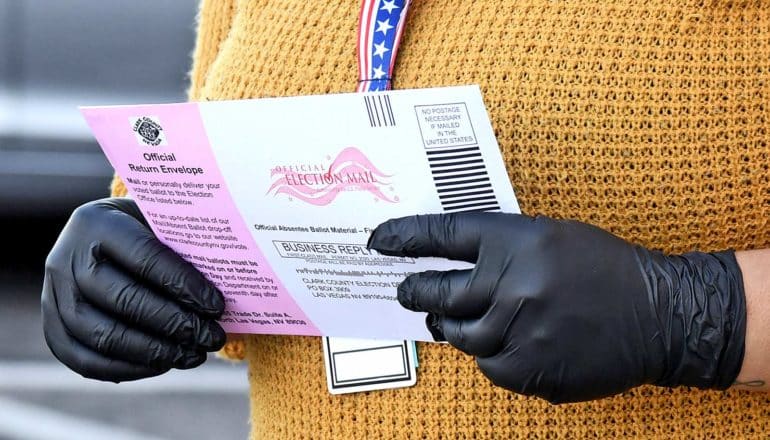
Political scientists say concerns about this year’s electoral process—conspiracy theories, democratic backsliding, the integrity of mail ballots—are challenging some fundamental ideas about the United States.
COVID-19 has upended many aspects of normal life, including this fall’s election season. The pandemic has cast its long shadow over the process of voting by mail. At the same time, the nation’s social and political climate—fraught with protests for racial justice, an erosion of shared democratic principles, and an increase in political conspiracy theories—has culminated in a November election like few others.
“If enough Americans stop believing that elections can represent the will of the people, our political system is truly broken.”
What should we make of it all?
Political science faculty members offer some answers: James Johnson from the University of Rochester and Susan Orr from the College of Brockport, State University of New York, who are the coauthors of the forthcoming book Should Secret Voting Be Mandatory? (Polity 2020).
Also responding are University of Rochester faculty members Gretchen Helmke, one of the principal researchers of the academic watchdog group Bright Line Watch; Scott Tyson, who studies how conspiracy theories influence public decision making; and Mayya Komisarchik, who focuses on racial and ethnic politics and how they play out in political representation.
Here are their responses:
The post Elections are odd in 2020. Political scientists explain appeared first on Futurity.
from Futurity https://ift.tt/3ja2mZJ
No comments:
Post a Comment